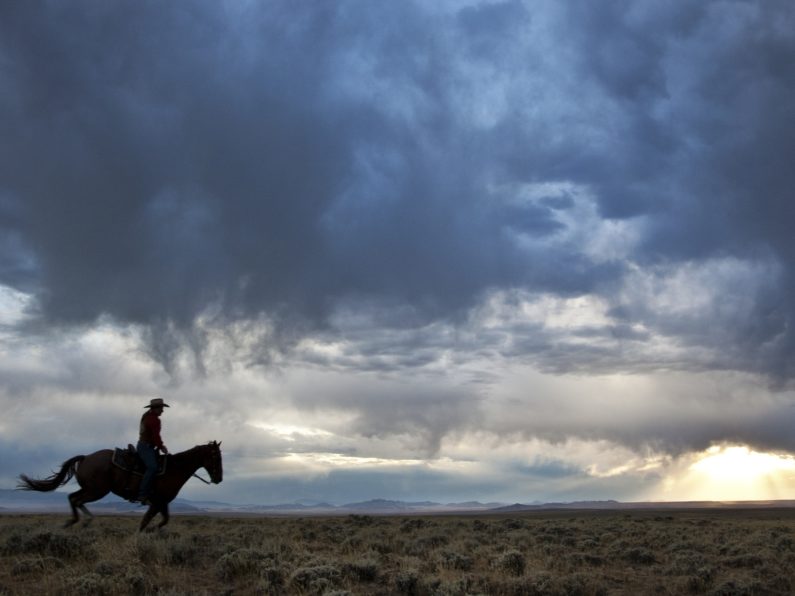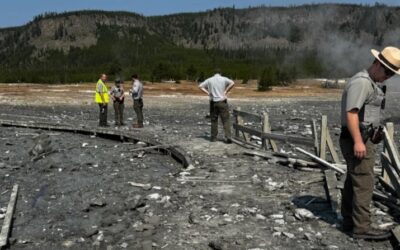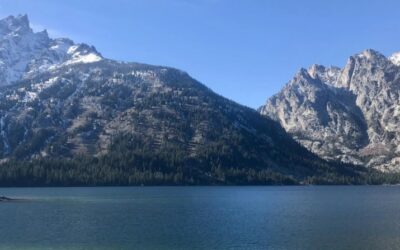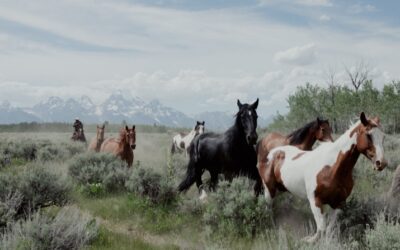Two dollars. That’s the sale price the Bureau of Land Management has charged for an acre of public land in Wyoming. BLM is selling such land for oil and gas leasing across the West and sportswoman Marcia Brownlee is sounding the alarm.
Brownlee leads Artemis, an initiative of the National Wildlife Federation that empowers sportswomen to advocate for conservation. Its mission now is to raise awareness about BLM’s upcoming sales of public lands for oil and gas leases. Brownlee is speaking out against these sales for several reasons. For one thing, the fossil fuel industry is declining and market demand is at an all-time low. Brownlee argues these sales are a giveaway to oil and gas companies and a substantial loss for public land users. She says they will also result in a loss of tax revenue generated by hunting and fishing.
The BLM oversees roughly 29 percent of Wyoming’s total land, so Brownlee hopes her mission will resonate with Wyomingites. And her message is timely. BLM sales in Wyoming are slated for next week and in December. A lot of land is at stake. More than 180,000 thousand acres are for sale.
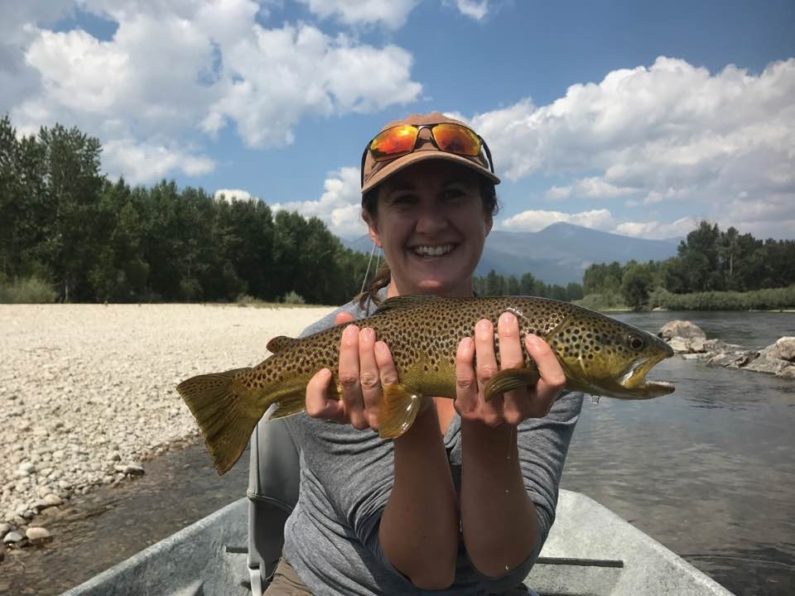
Montana resident Marcia Brownlee in her element. (Courtesy photo)
Brownlee told KHOL more about these sales, why she believes they should be halted, and how the leasing system can be updated.
Marcia Brownlee: So the oil and gas leasing sales happen mostly on the Bureau of Land Management Land. And so the process is that anybody can nominate a Parcel on Bureau of land management lands to be offered up for auction.
There’s an environmental impact statement, a comment period, a protest period, and then it gets put up for auction for oil industry and energy speculators to bid on. And, you know, Artemis supports the multi-use of our public lands. We support oil and gas development on our public lands. But right now, there’s an energy dominance agenda that prioritizes oil gas development over all other uses. And that’s at the expense of conservation. It’s at the expense of grazing? Ranching, you know, all other uses of our public lands are sidelined for the focus of energy dominance and development.
KHOL: Talk about the history of these oil and gas leasing sales. How long have they been in place, and why do you think that, in this current moment, they need to be paused?
Brownlee: Right now, they’re governed by policies that were put in place in 1920. You know, the financial system that governs our auction sales was literally set in 1920. And then other prices and processes were from 1987. So we’ve got an antiquated process and an antiquated system that’s 50 to 100 years old and is not paying attention to the benefits that we get from oil and gas leasing as a taxpayer, and it’s not balancing the multi-use and conservation priorities of our public lands.
And so right now, Artemis, in particular, is calling on the administration to pause, to stop leasing during the pandemic. Given that the oil market is really, really down and the industry is not currently leasing. And so what is being sold is being sold at below-market prices and being scooped up by energy speculators. So we want them to stop for now and really focus on updating the system and the policies to be more reflective of balanced development and current market prices.
KHOL: To that end, what are some of the improvements and updates to the BLM oil and gas leasing system that you are advocating for?
Brownlee: the first one is a bill called the End Speculative Oil and Gas Leasing Act of 2020. And it was introduced by Senator Cortez Masto from Nevada. And this is a low potential lands bill. So essentially it would require our public lands to be assessed for their potential as a source of oil and gas, and then it would not allow leases on lands that have low or no potential.
So I mentioned before that now they do go through a bit of an environmental impact statement, but they are not assessed for their potential as a resource. And so for me, this is just common sense legislation to make sure that we only lease land that has a real chance of being developed. This bill would allow the Bureau of Land Management to prioritize oil and gas development in areas with the highest economic value. And it would then free up low potential lands to be managed for wildlife, habitat conservation and for recreation.
KHOL: Marcia, you just mentioned one potential piece of legislation that will make sure BLM land is assessed so that what is being sold and developed does in fact have a high potential to be a source of oil and gas. What about reforms to the price of oil and gas leases?
Brownlee: There’s the Fair Returns for Public Lands Act. And this is a bipartisan bill introduced by Democratic Senator Tom Udall of New Mexico and Republican Senator Chuck Grassley of Iowa. And this bill is aimed at restoring fiscal responsibility by making sure Oil and gas companies pay a fair market price for extracting resources. So current royalty rates, as I mentioned, were set in 1920. They are set at 12.5 percent. And this bill would raise royalty rates to 18.75 percent, which is actually the current rate oil companies pay for offshore leasing. So it’s just bringing onshore leasing and offshore leasing up to the same royalty rate. This bill would also increase the minimum bid for leases from the current price of two dollars an acre to ten dollars an acre. And, you know, according to reports, this would increase federal revenues by $20 to $38 million dollars a year with a similar amount flowing to states. And so really, this just modernizes our leasing costs to reflect current market value and make sure that as taxpayers we’re getting we’re getting value for the resource that we deserve.
KHOL: It’s no secret that conservationists, recreationists, and the oil and gas industries don’t always see eye to eye. Talk about how you think these many different stakeholders can still move forward when it comes to our public lands.
Brownlee: I think the first step is bringing everybody to the table, right. And making sure that this is a conversation and less of a debate, more of a conversation. And I think as with everything, right, when we’re trying to negotiate multi-use of a system, there’s going to be a little give and take. So not everybody’s gonna get their way 100 percent of the time. But if they feel like they’re engaged in the conversation and listened to, then that balance is more likely to happen. I think the first step is really looking at the very specific landscape that we’re talking about. Is it critical habitat for an animal such as the sage grouse? Is it in the middle of a migration corridor for our mule deer? Is it calving habitat for elk? You know, really looking at the value of that land and what makes the most sense, not just for today, but for, you know, the next hundred years, if we develop in the middle of this critical habitat, will it recover? How long will it take to recover? What are we losing in the meantime? And I think balancing the economic benefits that we get from it, as well as important oil and gas development, is incredibly important to the economies here in the West. So is outdoor recreation and maintaining the health and vitality of those lands, waters, and wildlife is incredibly important to maintaining that outdoor recreation economy, to maintaining the state-based income we get from hunting and fishing license sales. And so we really just need a full perspective approach.

